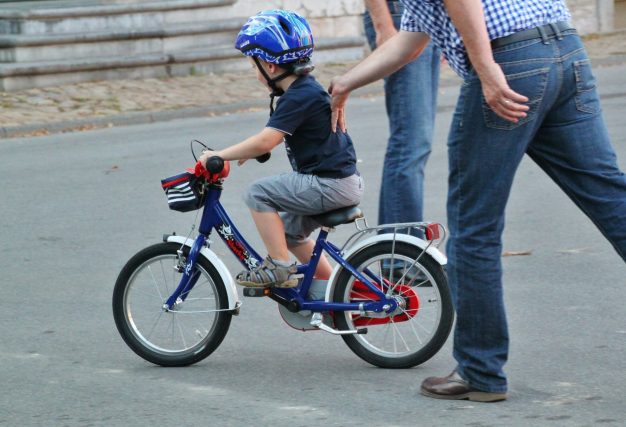
UK government misses its children’s cycle training targets – report
Provision for basic bicycle training for children living outside London needs urgent improvements as part of the government’s obligation to meet mobility goals.
The National Audit Office, which scrutinises public spending, says the government is ‘not on track’ to achieve objectives to increase rates of cycling and walking, despite an increase in spending.
In a report, it says that the Department for Transport (DfT), which has set out a series of objectives to increase mobility in the coming years, has not been properly monitoring local active travel programmes, including cycle lanes and low traffic schemes.
During the pandemic the DfT launched a £250million fund designed to support the fast delivery of active travel schemes. Intended to help facilitate social distancing and increase rates of active travel, some local authorities, says the NAO, found it ‘challenging’ to build schemes quickly and get communities involved, resulting in ‘poor implementation’.
‘Poor implementation’
Gear Change is one such national scheme, an ambitious national cycle and walking strategy introduced in 2020. It set out the actions needed at all levels of government, national and local, to increase mobility, including putting cycling and walking at the heart of decision-making and empowering local authorities to instigate and deliver ideas.
The NAO says that while progress has been made on many of the Gear Change goals, it has made the least progress on actions intended to improve the integration of active travel within transport and wider policy areas. Gear Change identified cycle training, under the banner of Bikeability, for children as a vital step, but it has not yet expanded these projects as intended.
According to the NAO, the proportion of children outside London who have completed basic road training by the time they leave primary school will need to increase by two-thirds, from around 50 to 80 per cent, for the DfT to deliver this particular Gear Change commitment.
“Cycle training is an important behavioural intervention to develop cycle skills and confidence. To increase this proportion of children receiving training, DfT needs more schools to participate in the programme and more instructors to deliver training,” says the NAO report.
‘More schools should participate in cycle training’
In December 2022, Active Travel England, the DfT’s dedicated cycling and walking sub-group, proposed changes to the Bikeability model, recommending that more cycling interventions are delivered earlier and, crucially, in school, as this will hopefully release more instructors to deliver road-based training.
Gareth Davies, head of the NAO, said: “Active travel schemes have the potential to deliver significant health and environmental benefits. However, the DfT knows little about what has been achieved through its past spending and is not on track to achieve most of these objectives.
“DfT has raised its ambitions for active travel and recognised areas where its performance must improve. Establishing Active Travel England is a good step; Active Travel England and DfT must now maintain this early positive momentum, by learning what works and applying it and building partnerships across central and local government.”




